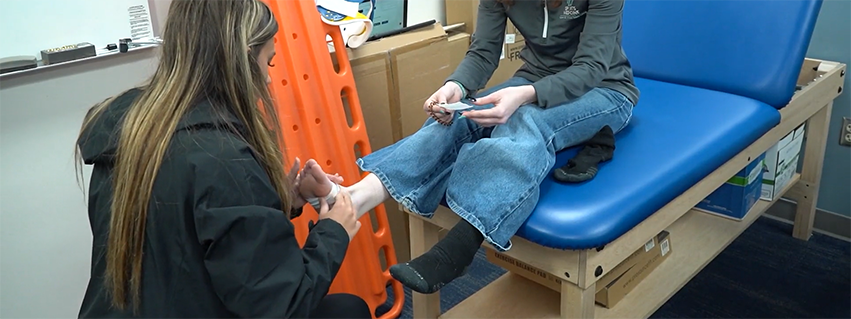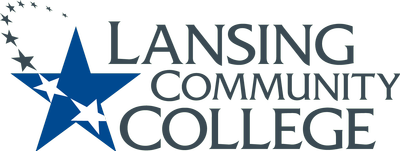
Sports Medicine
This program is offered to juniors and seniors who are wishing to pursue a profession in the field of Sports Medicine. It includes components of Kinesiology (the study of human movement), Exercise Science, Physical Activity, Injury Prevention and Treatment, Rehabilitation and Nutrition. A variety of field trips will be scheduled throughout the year to expose students to various professional settings including Athletic Training, Group Fitness Instruction and Exercise Physiology. Students will have the opportunity to do a professional job shadow.
Approximately 50% of class time is spent using hands on instruction, interaction and participation.
Course Information
Program Location
LCC Main Campus (Shuttle Available)
Session Offered
AM.PM
Average Lecture Days/Week
2-4 days
Average Lab Days/Week
1-3 days
Homework
Daily
Required Reading
- College level textbooks and workbooks
- More than 25 pages a week
Success Indicator
- Interested in physical activity and interaction with others
- Able to use critical thinking to apply exercise, movement and psychology principles to create exercise goals and programming
- Manage health risk factors
- Prevent and treat injuries
- Assess fitness and body composition
- Passionate for helping others achieve physical activity goals
- Effective in a team setting
College Credits - 9
- PFHW 163 - Healthy Lifestyles (2)
- PFKN 170 - Foundations of Kinesiology (3)
- PFKN 210 - Introduction to Athletic Training (3)
- PFFT 109 - Introduction to Fitness (1)
Academic Rigor
4 out of 5
Capital Region Technical Early College (CRTEC)
Students enrolled in this program may choose to participate in the Capital Region Technical Early College program. This is a high school-to-college program where students start in grade 11 and end their 13th year with a degree or certification. This program gives students relevant career related experiences.
Course Outcomes
Students learning outcomes include, but are not limited to:
- Perform a physical fitness assessment and compare the results to standardized norms
- Develop and implement an exercise routine
- Understand and demonstrate proper use of fitness room equipment
- Explain basic exercise physiology concepts
- Complete a nutritional analysis and analyze personal nutritional habits
- Explain the importance of body composition and its effects on health and fitness
- Define the components of a healthy lifestyle, including stress management and addictive behaviors
- Define addictive behaviors
- Develop and implement a personalized healthy lifestyle plan to prevent disease
- Recall historical facts that contributed to the birth of physical education as a profession
- Distinguish between the sub-disciplines of Kinesiology and their theories
- Identify and explain anatomical and physiological fundamentals of systems in the human body
- Evaluate various methods of sports related risk management and injury prevention
- Demonstrate the skills of taping anatomical locations that are basic to specific sport related injuries
- Describe the methods used to evaluate and assess sports injuries
Certification
- CPR
Student Leadership
Students have the opportunity for leadership, competition and community service through membership in HOSA.
Career Outlook
Careers
- Athletic Trainer
- Exercise Physiologist
- Occupational Therapy Assistant
- Sports Medicine Physician
- Physical Therapist
Median Wage
- Athletic Trainer: $57,930 Annually
- Exercise Physiologist: $26.38 Hourly, $54,860 Annually
- Occupational Therapy Assistant: $32.22 Hourly, $67,010 Annually
- Sports Medicine Physician: $113.46 Hourly, $236,00 Annually
- Physical Therapist: $47.94 Hourly, $99,710 Annually
Employment Outlook (Average)
- Athletic Trainer: 9%
- Exercise Physiologist: 9%
- Occupational Therapy Assistant: 9%
- Sports Medicine Physician: 2-4%
- Physical Therapist: 9%

